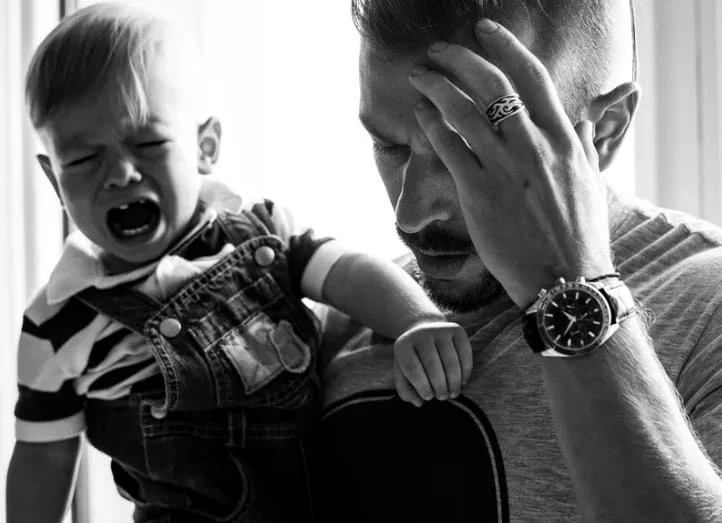Parents love their children unconditionally ― it is an instinct even in animals. However, loving your kids unconditionally doesn’t automatically translate to unconditional parenting.
Here’s what that means.
If you’re constantly yelling and arguing with your kids and constantly need to show your children who the boss is, you’re still stuck in the old ways of raising kids; meaning, you’re missing out on conscious parenting.
Raising kids can be challenging, but making your children earn your love and affection can negatively impact their overall development. They will grow up to please you (and, by extension, put others’ needs above theirs), seek external validation, and fear being authentic.
Still, conditional parenting doesn’t eliminate parent-child conflicts, especially during adolescent or teenage years.
If you’ll like to resolve conflicts, reduce misunderstanding, and feel better about your parenting decisions without power struggles, keep reading because practicing the principles of unconditional parenting will help you achieve all of these and more!
Understanding the Concept of Unconditional Parenting

Most parents quickly learn that molding another human being is a life-long task and comes with different challenges, depending on the child’s developmental stage. To find some sort of relief, most parents tend to adopt a parenting style that persuades kids to behave in ways that make our lives easier.
Unconditional parenting is the exact opposite of that approach. The parenting approach focuses on showing children unconditional love and support, regardless of their behavior. In other words, parenting using the unconditional approach means accepting your kids just as they are, without trying to beat them into your preferred shape.
The overall goal is to make children live more authentically and feel supported in their decisions as you become a better parent.
But won’t I “spoil” my child with this parenting approach? How will my kid know what’s right and wrong and how to make good decisions if I support him or her unconditionally? Does it mean I shouldn’t scold, lecture, or reprimand my child for doing something wrong?
Indeed, the concept of unconditional parenting raises many questions because the approach defies most of the long-held parenting ideologies. To answer these and more questions, let’s look at the principles of unconditional parenting.
8 Key Principles of Unconditional Parenting

Loving your children no matter what is easy in theory; consistently expressing unconditional love is where the rubber meets the road.
Here are the core principles of parenting unconditionally and positive parenting.
1. Prioritize the Parent-Child Connection
First things first, unconditional parenting is a groundbreaking approach about strengthening the parent-child relationship, meaning you have to put the relationship with your child above every other consideration.
Here’s what that means.
Start working yourself as a mother or father, not the child. Your child naturally wants to relate with you just as you are ― that’s a given! We, the adults, want our children to behave in certain ways to please us. We put our preferences and conditions above the natural connection to our children.
As parents, we must decide to love and support our children for who they are, not for their achievements or good behavior, and certainly not because they make us proud.
Bottom line: unconditional parenting is not just about raising kids; it is working to become the type of adult who raises fully developed children.
2. No Carrot-And-Stick Approach
Traditional parenting styles often use rewards, praises, and punitive measures to control childrens behavior. The goal is to use these motivations to “shape” kids into responsible individuals.
While this has been the practice for eons, it only shapes children into learning to do what the parents think is right and avoiding what their parents say is wrong.
However, there is no room for this type of motivation and these parenting techniques in unconditional parenting.
This is one of the most challenging aspects of unconditionally loving your children because most parents believe they’ll “spoil” their kids if punishments are not used to deter bad behavior and rewards and positive reinforcement are not offered to promote good human behavior.
But think of it this way: raising kids is not like running a business, so applying coercion or persuasion methods based on the offer of rewards and threats of punishment doesn’t bring the best out of children.
Here’s what kids hear when you use praise or punitive measures, “I will love you if you do what I say, and I will stop loving you if you disobey me. You have to earn my love!”
Bottom line: the carrot-and-stick approach goes out the window if you must parent unconditionally!
3. Practice Unconditional Support
How do you support your child if praise and punishment have no place in unconditional parenting?
Here’s how.
Replace those controlling methods or motivation techniques with unconditional support.
Actions come with consequences, whether good or bad. This means there is really no need to reward or punish children for their actions. Nothing teaches kids better than the outcome of their actions.
For example, your child may break their toy out of frustration and realize they can’t play with it anymore. Your child learns this consequence, whether or not you scold him or her.
However, by showing unconditional love and support, you understand your child’s frustration and heal it rather than causing more pain by punishing the unwanted behavior.
Easier said than done; I get it. But you must make an effort if you want your children to behave naturally, be real at all times, and learn to make good decisions without someone imposing their opinions on them.
Bottom line: never let your child think you’ll only support them if they behave the way you want. Ensure your child understands they can always count on your love and support, no matter what.
4. Ask More, Instruct Less
It is rather difficult to offer unconditional support without understanding your child’s needs. Behind the annoying tantrums, non-stop cries, shoving and throwing stuff, and other displays of frustration and emotion is an unmet need.
Children, especially little ones, may have trouble communicating their needs maturely. After all, they are kids. But that’s why you’re the adult, not just any adult ― their parent.
Showing unconditional support means you need to spend less time instructing, leading, commanding, correcting, and talking and more time asking clarifying questions to help you understand how best to help your child. You also avoid making basic assumptions.
Actively listen to your child to validate their feelings and emotion, and then respond to your child accordingly. This helps to build self-confidence in the child and leads to better decision-making without constantly seeking external approval.
Bottom line: listen to your child, not just with your ears but with your heart, too!
5. Be Flexible
Okay, here’s another “provocative” principle in this parenting method. “My house, my rules” sounds extreme, yet that’s exactly what we’re doing when we force our kids (using threats or physical force) to do what we say.
Barking orders and strictly enforcing house rules doesn’t feel good ― not to you, and certainly not to your child.
Unconditional parenting advocates flexibility with rules as it applies to children. Although predictability is essential, it is even more crucial to respond to different situations based on their unique context rather than rigidly enforcing rules.
This doesn’t mean you have double standards; instead, it means you understand that the rules and meant to serve the family and not the other way around.
Adopting this parenting style and approach means you’re open to talking things out with your children. Discuss why you disagree on something and remember to keep the conversation open and honest.
You are the adult, so you can find ways to present concrete reasons for your kids to see things from a broader, more helpful perspective without “tricking” or cajoling them.
Bottom line: Don’t make a fetish out of rules.
6. Support Kids’ Autonomy
Do you want your kids to feel confident and better about themselves? Allow them to make decisions whenever possible (unless there is a concrete reason not to).
Of course, you shouldn’t give full autonomy to children because they are sometimes too immature to handle it properly and always make good decisions.
However, you don’t have to make every single decision for your child. Let your child participate in decision-making, even if their input means very little.
For example, always ask your child what color of toy they prefer before buying one for them. By including them in the decision-making, you help boost their sense of confidence to make better future decisions.
Bottom line: children can only learn to make better decisions if they are allowed to decide.
7. See Things From Your Child’s Point of View
Parenting gets better when you see the world from your child’s perspective, and this is a crucial aspect of unconditionality when it comes to this parenting style.
Understand that kids simply want to have fun, and it often seems like we are getting in their way, regardless of our best intentions.
Thankfully, you can reduce this feeling of interference by imagining how your child will feel about your suggestions and ideas.
Bottom line: children see the world as their oyster, so try as much as possible to help them find their way as caring responsible selves instead of getting in their way.
8. Be Real
Parents tend to forget their humanity when relating with their children. However, parenting from the perspective that you’re always right doesn’t do much to help your child’s confidence.
It is okay not to have all the answers, even as parents. And it is even more important to not pretend about it. Let your kids see that you are authentic, and don’t forget to apologize when you are wrong.
Bottom line: give up the need to be right all the time, especially when it comes to dealing with your kids.
What to Expect From Unconditional Parenting

As you may have figured, unconditional parenting isn’t the easiest parenting style. Kids may love it, but most parents will have a hard time adjusting to the style.
The good news is that you can expect several important benefits from adopting this parenting approach. However, as you’ll see below, there may be some challenges down the line.
You’ll Raise Independent Kids
By allowing kids to make their own decisions, you will raise self-confident, independent kids who are not afraid of making mistakes because they can count on your support, no matter what.
While traditional parenting styles may protect kids from mistakes and getting hurt, these methods often fail to nurture the decision-making abilities of children. Instead, traditional approaches instill the fear of making mistakes in children so that they grow up to be insecure and always second-guessing their decisions.
You’ll Feel Better About Parenting
With no power struggles, there will be a significant reduction in arguments, fights, and conflicts because parents no longer feel the need to lord over their kids.
This means you will feel more positive about how you raise your children.
Most importantly, you will be a better person because it takes someone extremely patient and open to learning to truly show unconditional love, especially to kids.
Other Parents Will Judge You
As mentioned, unconditional parenting is not without a few not-so-pleasant effects. One of the most apparent challenges is judgment from others. Relatives, neighbors, and other parents will judge your parenting; make no mistake!
Expect lots of unsolicited pieces of advice and off-hand comments, even from strangers who think you’re doing a poor job of raising your kids. They may even suggest you read a parenting book or two.
While you might do your best to ignore judgments, unsolicited advice can sting like squirting lemon juice on freshly grazed skin!
Thankfully, there are positive ways to handle judgments without being reactive. I recommend reading this article to learn what to do when other parents judge your parenting.
Bottom Line
Everything I’ve said in this article about unconditional parenting can be summed up in one short sentence: never stop loving your kids, no matter what!
You don’t want to raise children that rely on external approval and are insecure about being themselves. While it may not be very glaring to some, making kids earn your love and affection clearly shows selfish parenting.




